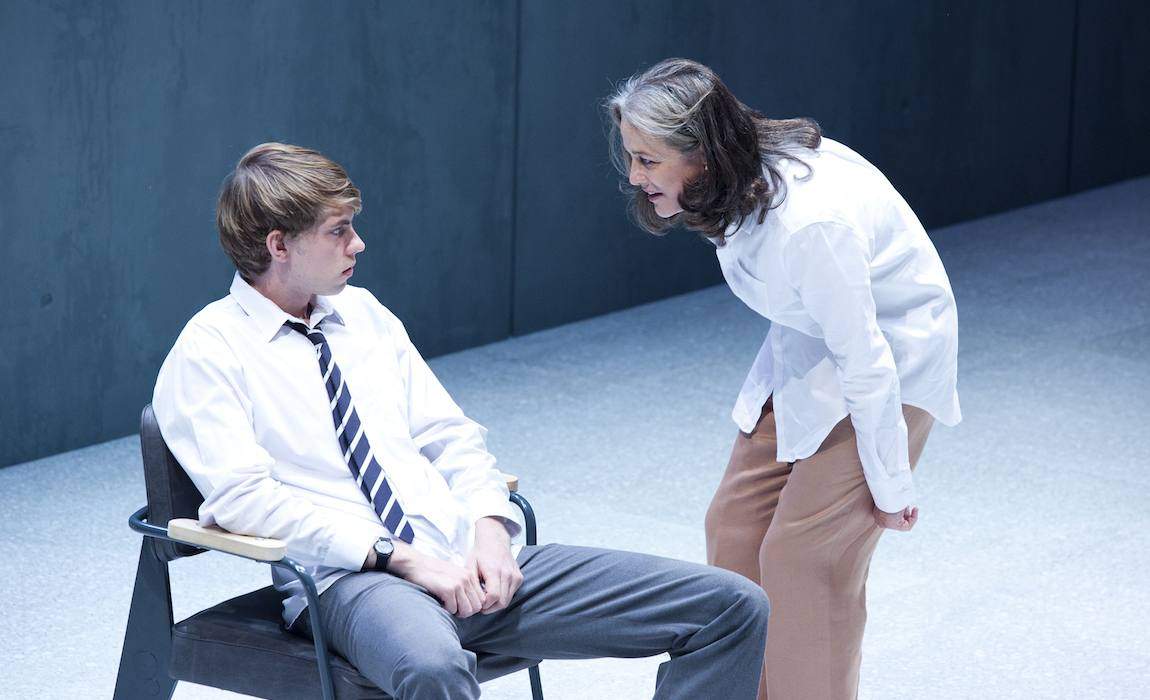Fury – Sydney Theatre Co
How do we judge a teenager who commits an ideologically driven act of violence?
Overview
Theatre companies set their programs often a year before a play opens, and sometimes it means the things we see on stage don't directly speak to current events. Not so Fury, the Sydney Theatre Company's commission from prominent Australian playwright Joanna Murray-Smith. Opening, coincidentally, in the same week as the heartbreaking Boston Marathon bombings, it deals deeply with the mindsets of teenagers who commit ideologically driven acts of violence. Eighteen is the age of criminal responsibility, we know. But how do we judge a culprit who is seventeen? How about nineteen?
Fury's central character is Alice (Sarah Peirse), a scientist about to be honoured with an award for her contribution to cancer treatment. She and her supportive novelist husband, Patrick (Robert Menzies), lead beautiful, privileged, liberal-leaning lives and those lives are shattered when their only son, Joe (Harry Greenwood), is caught graffiting a mosque. They don't know what to blame: Evil nature? Their failed nurture? The influence of Joe's meathead best friend? Their troubles are made even more fraught by the hovering of Rebecca (Geraldine Hakewill), a student journo with a rigour more suited to Four Corners.
Critics seize on Murray-Smith for her middle-class preoccupations, and it's hard to argue with that via Fury. Her one attempt to introduce salt-of-the-earth working-class types is definitely the low point of the play, a crude stereotyping that's uncomfortable to watch alongside the individually shaded educated characters that get to occupy the rest of this world. Still, you can't dismiss Murray-Smith; she is a formidable writer. The story is fierce, the dialogue electric. If the characters act in service to big ideas, in Fury at least, it's a symbiotic relationship.
Peirse's Alice is a big, seductive, mercurial character, and Menzies' Patrick is the warm, empathic heart of the thing. But the most compelling figure on stage is actually teen riddle Joe, brought to life in a breakthrough main-stage debut from NIDA grad Harry Greenwood. Whether he's being introduced to us in sullen silence, going off on bigoted rants or naively big-noting himself to pretty strangers, there are always further layers to the character glinting just beneath the surface, and it makes a huge impact on the play as a whole. Hakewill is a similar talent, but some of her scenes seem undercooked; Rebecca is a loose cannon in these people's crystal lives, and her manipulations rarely get a chance to reverberate.
All up, I found myself both loving and hating Fury, which is much better than those plays that make you feel nothing at all. I disagree with what could be called Murray-Smith's 'theses' here that the root of youthful idealism is in rebellion against one's upbringing, that left-wing and right-wing radicalism are equivalent but they're part of an enjoyable, challenging, satisfying ride. I loved small things Alice's clean-lined Jil Sander outfits and grey-streaked blow-wave for starters (my upper-middle-class bias comes out that way). And I loved weighty things the critical confrontations between characters tear you apart with their moral dilemmas.
Fury is a mixed bag, but a mixed bag worth chewing over.





